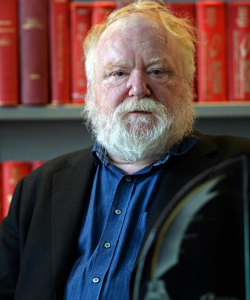
Brendan Maher, an Irish hurler who plays for club side Borris–Ileigh and previously at inter-county level with the Tipperary senior hurling team, is born on January 5, 1989, at Borrisoleigh, County Tipperary. Regarded as one of the great talents of his generation, Maher enjoys a 13-season career with the Tipperary senior hurling team, wins three All-Stars and is a Hurler of the Year nominee in 2010. He wins eight major trophies in his inter-county career, comprising three All-Ireland Championships, captaining the team in 2016, and five Munster Championships. A versatile player who switches between attacking and defensive positions, he makes a combined 124 league and championship appearances.
Maher first comes to prominence as a hurler with St. Joseph’s College in Borrisoleigh. He plays in every grade before eventually joining the senior hurling team and lines out in several Harty Cup campaigns.
Maher studies at Mary Immaculate College in Limerick between 2006 and 2009 and joins the senior hurling team in his second year. On March 7, 2009, he is named man of the match when Mary Immaculate College defeats the University of Ulster by 1–12 to 1–05 to win the Ryan Cup.
Maher joins the Borris–Ileigh club at a young age and plays at all grades in juvenile and underage levels. He joins the club’s senior team as a 16-year-old during the 2005 North Tipperary Senior Hurling Championship. During his time with Borris-Ileigh, the team wins the North Tipperary Senior Hurling Championship in 2005, 2007 and 2017, the All-Ireland Mini 7s Championship in 2015, and the Tipperary Senior Hurling Championship and Munster Senior Club Hurling Championship in 2019.
Maher first plays for Tipperary as a member of the minor team during the 2005 Munster Minor Hurling Championship. He and the team go on to win the Munster Minor Hurling Championship in 2007, the All-Ireland Minor Hurling Championship in 2006 and 2007, the Munster Under-21 Hurling Championship in 2008 and 2010, and the All-Ireland Under-21 Hurling Championship in 2010.
Maher joins the Tipperary senior team in advance of the 2009 National Hurling League. During his ten years with the senior team, they win the Munster Senior Hurling Championship in 2009, 2011, 2012, 2015 and 2016, and the All-Ireland Senior Hurling Championship in 2010, 2016 and 2019. On August 21, 2021, he announces his retirement from inter-county hurling after 13 years with the team.
Maher is added to the Munster team in advance of the 2012 Inter-Provincial Hurling Championship. He makes his first appearance for the team on February 19, 2012, when he lines out at left wing-forward in a 3–14 to 1–16 defeat by Leinster. On March 3, 2013, he lines out at midfield when Munster qualifies to play Connacht in the 2013 Inter-Provincial Hurling Championship final. He ends the game with a Railway Cup medal following the 1–22 to 0–15 victory. On December 15, 2016, he wins a second Railway Cup medal after captaining the team from midfield in a 2–20 to 2–16 defeat of Leinster in the final.
On October 19, 2011, Maher is named on the Ireland squad for the Shinty-Hurling International Series. On October 29, 2011, he lines out at centre-forward when Ireland defeats Scotland on an aggregate scoreline of 3–25 to 3–19 following a two-game series. He is selected for the Ireland team for the second time in his career on October 22, 2013. He claims a second winners’ medal from right wing-forward following Ireland’s 5–27 to 2–26 aggregate defeat of Scotland on November 2, 2013.
In October 2022, Maher is announced as Offaly senior hurling team performance coach under the management of Johnny Kelly.







 Poet
Poet  Eight women from
Eight women from 